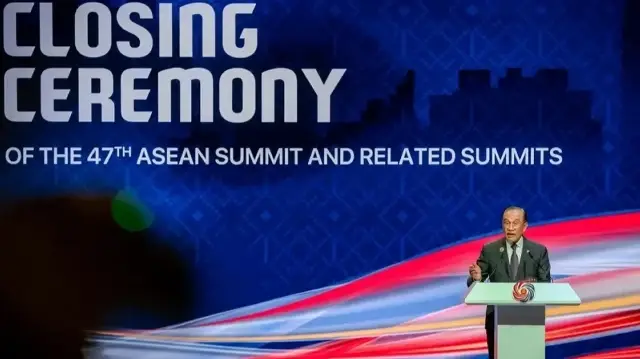Southeast Asian defense chiefs urge dialogue amid rising tensions

Defense ministers from ASEAN nations and eight partner countries have concluded a three-day summit in Kuala Lumpur, emphasizing dialogue and cooperation to address growing regional security challenges. The meeting brought together officials from competing global powers including the US, China, and Russia.
Defense leaders from Southeast Asian nations and their global partners have emphasized the critical importance of sustained dialogue and cooperation to maintain regional peace and security. The ASEAN Defense Ministers' Meeting Plus, held in Kuala Lumpur from Friday to Sunday, convened military officials from competing world powers amid increasing geopolitical tensions.
High-Level International Participation
The three-day security dialogue brought together defense ministers from the ten ASEAN member states alongside counterparts from eight partner nations: the United States, China, Russia, Australia, India, Japan, South Korea, and New Zealand. The diverse participation reflected the strategic significance of the Southeast Asian region to multiple global powers and their shared interest in maintaining stability.
Joint Statement on Collective Security
A joint declaration issued during the summit reaffirmed participant nations' commitment to upholding international law, including the United Nations Charter. The document acknowledged that Southeast Asia and the broader international community face intensifying geopolitical tensions, conflicts, and economic challenges that require collective approaches to security. The statement specifically highlighted the value of "collective collaboration for peace" in addressing emerging and transboundary threats.
Emphasis on Practical Cooperation
The defense chiefs recognized what they termed "consistent and positive contributions" from dialogue partners in enhancing ASEAN members' capacity to address current and emerging security challenges. The joint statement stressed the importance of fostering environments that promote peace, security, and prosperity through developing a "culture of dialogue" and engaging in "substantive, practical and tangible cooperation" to build mutual trust and confidence among participating nations.
By: Khan Muhammad An Nazmus Saqib
Reklam yükleniyor...
Reklam yükleniyor...







Comments you share on our site are a valuable resource for other users. Please be respectful of different opinions and other users. Avoid using rude, aggressive, derogatory, or discriminatory language.